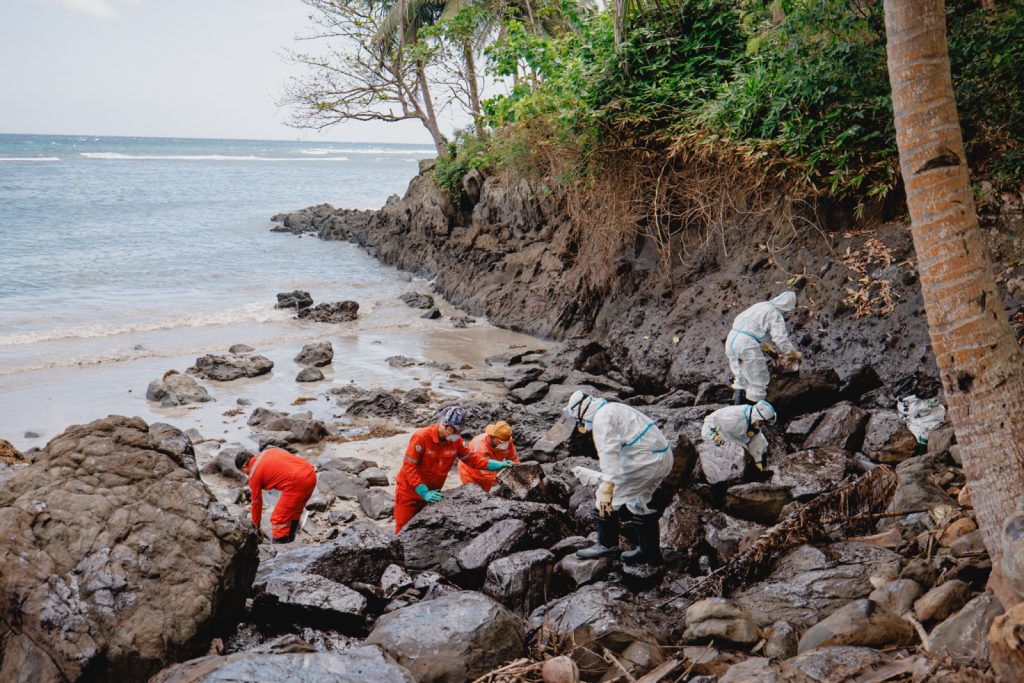Government must enforce more stringent measures on fossil fuel companies, and ensure communities are paid reparations from the impact of the companies’ operations, said Greenpeace Philippines.
The environmental activist group made the call as its ground teams conducted rapid assessment and documentation of the damage brought on by the ongoing oil spill off the coast of Mindoro Island.
The oil spill was caused by the sinking of the tanker MT Princess Empress owned by RDC Reield Marine Services (RDC).
“This oil spill, an unfolding environmental and social catastrophe, is a test case for reparations for environmental damage from fossil fuel operations,” said Greenpeace campaigner Jefferson Chua.
“We need to see the government siding with communities and enforcing measures that would ensure the companies concerned go beyond ‘cleanup’ and pay reparations for the environmental destruction and its impacts on people,” he said.
Chua said payment must include costs of loss of livelihoods, short and long term health impacts, and destruction of ecosystems. “Anything less is shortchanging the communities,” he added.
In a statement, Greenpeace said the scale of the devastation from the spill so far is already widespread, impacting some of the country’s most biodiverse marine protected areas and richest fishing grounds.
“Coastal communities have no defense against oil spills which destroy their primary source of livelihoods from fishing and tourism, impact their health and well-being, contaminate the water they drink and air they breathe, and destroy their immediate environment,” it said.
“Worse, the impacts can also linger for generations, with spilled oil in particular often remaining just below surface soil for decades,” added the group.

Greenpeace said the government needs to learn lessons from the past, adding that the current oil spill is not the first major oil spill that has damaged vital marine ecosystems.
The group said authorities “seem to be struggling to get RDC to own up to the disaster.”
Reports indicate that the company took five days before they agreed to meet with the government, and they have not agreed to shoulder the costs for damages to the at least 21 marine reserves damaged by the spill, noted Greenpeace.
Chua said the national government “must ensure the company pays the community not just for mechanical removal but for loss of livelihoods and destruction of ecosystem services.”
“This catastrophe is a reminder that at all stages of its lifecycle, fossil fuels bring permanent harm to people and the planet,” he said.